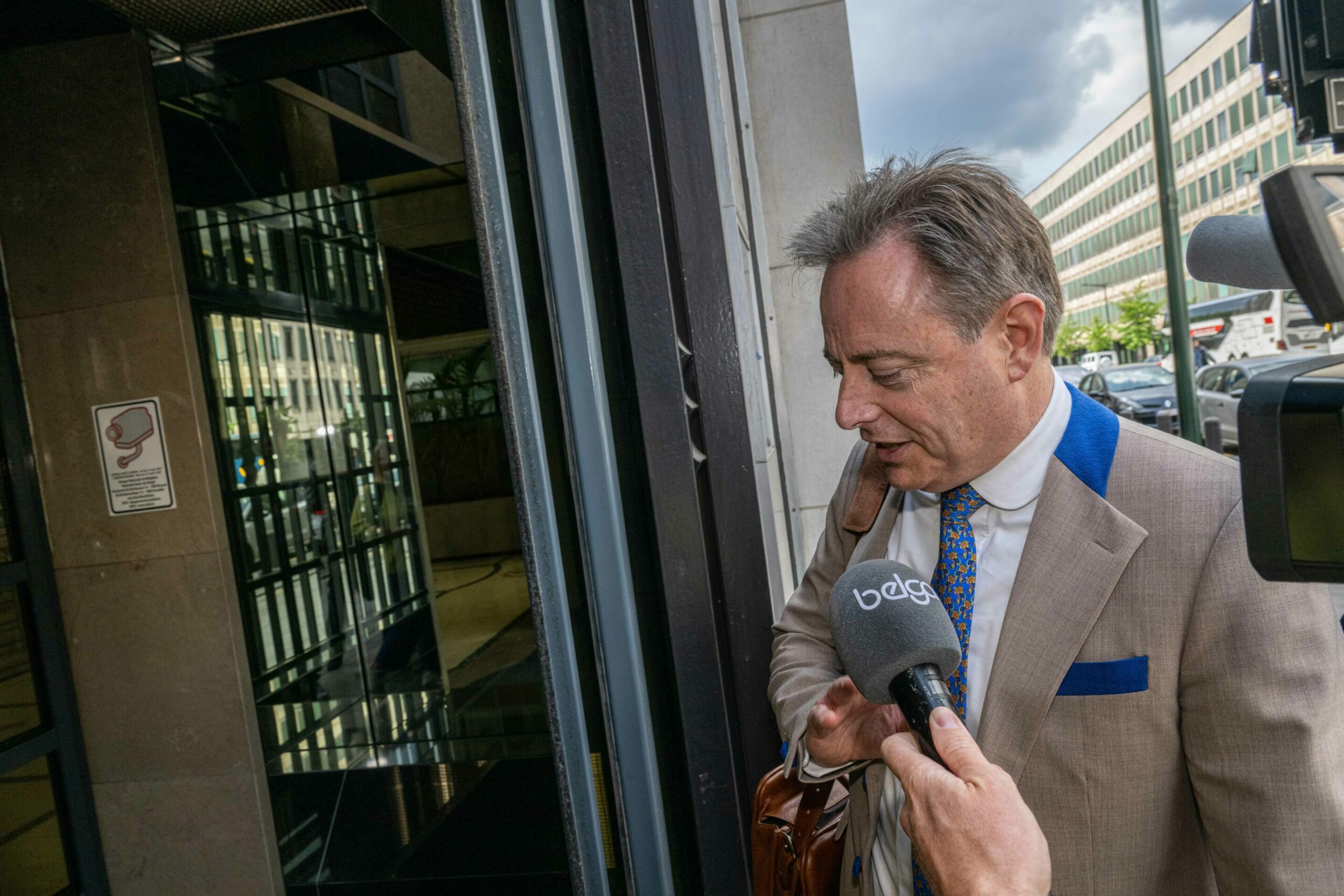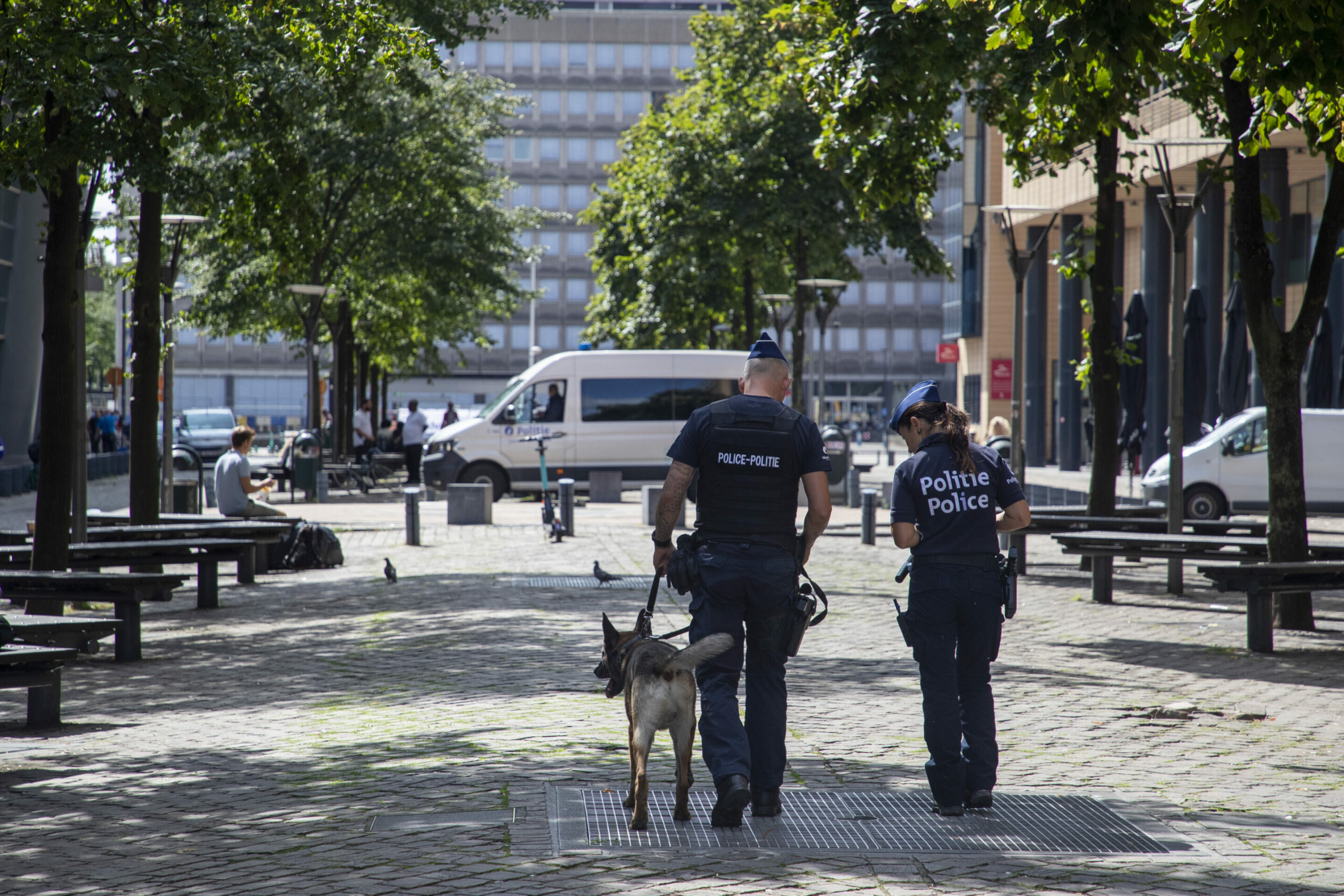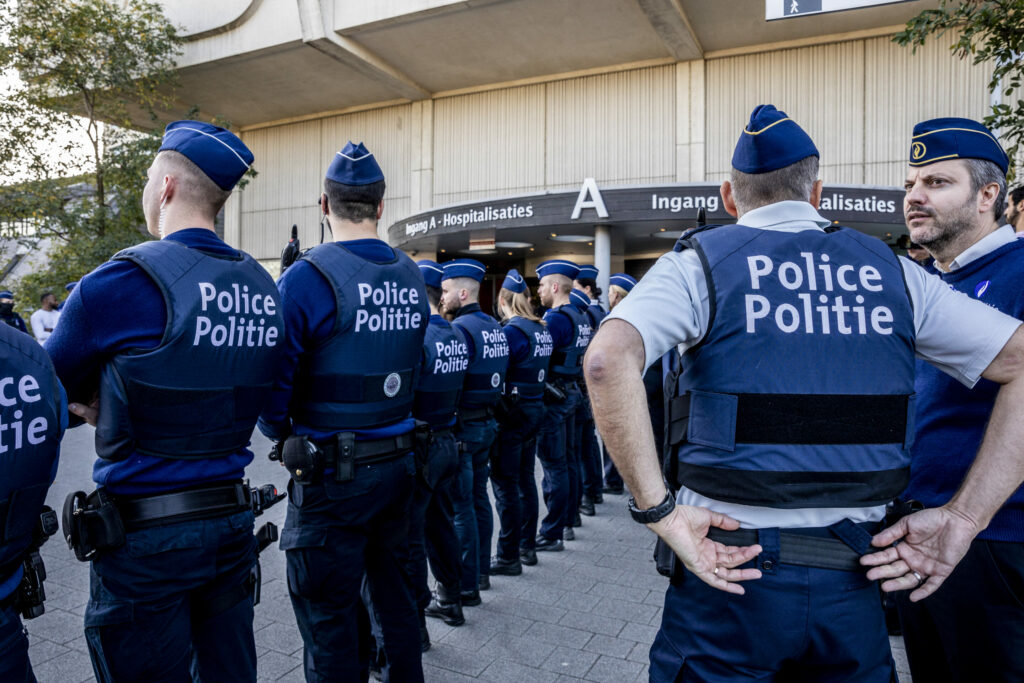Brussels is one of the only major cities in Europe without a centralised police force. Is this about to change?
Police forces in the capital are divided into six zones across 19 municipalities. With large-scale criminal operations often bleeding across boundaries and requiring frequent inter-zone cooperation, the question of merging all six into one central system has snagged security discussions for years now.
Flemish parties tend to favour a merger, while all Francophone parties (apart from Ecolo) are opposed to it, with the Socialist Party (PS) expressing concern about how one operation would successfully manage the entire city.
However, Federal Government negotiations have rattled the status quo. Talks are led by the right-wing Flemish party N-VA (pro-merger) and it seems that the centre-right Francophone Les Engagés could be convinced to switch sides.

N-VA leader Bart De Wever entering Federal Government formation talks in July 2024. Credit: Belga / Jonas Roosens
"Our party programme is against the merger but we are not taking an ideological stand," Christophe De Beukelaer, head of Les Engagés' Brussels list, told L'Echo. "We are ready to discuss it but we don't see the added value at the moment."
If Les Engagés' position changes at the federal level, this will certainly impact its position in Brussels Government formation talks, leaving PS alone on the anti-merger team.
'A false good idea'
Alone or not, PS is holding firm. "A merger is a false good idea," Saint-Gilles Mayor Jean Spinette (PS) told The Brussels Times, arguing that the strategy spearheaded by N-VA does not take into account the fact that municipalities provide the bulk of financing to their police zones.
Saint-Gilles along with Forest and Anderlecht forms the Midi zone, and the Mayor says the real issue – resources – will not be addressed by a centralisation of authority. Brussels-Midi train station is an "international zone" and a crime hotspot without enough police personnel to cope, he says.

A police patrol with a police dog near Midi. Credit: Belga / Nicolas Maeterlinck
"I find it strange that they are talking about merging police zones when we have been promised a police station at Brussels-Midi that hasn't been delivered."
Spinette is convinced that continued collaboration and local policing are the way forward. "Centralisation does not mean better efficiency. Think of rubbish collection: the system was centralised but it is a mess. Municipal employees are the ones cleaning up after people.”
Why the Franco-Flemish divide?
Advocates of the overhaul (N-VA, Open VLD, Groen, CD&V and Vooruit) frame the merger as a way to improve efficiency and unify leadership. Why is this view more prevalent among Flemish parties?
"The Flemish perspective is much more in favour of larger entities to conduct and execute policies," UGent criminology professor Jelle Janssens told The Brussels Times. "Whereas in Wallonia, the smaller the better: you need to be as close as possible to the public." A centralised model creates more bureaucracy, which "increases the distance between politicians and citizens."
Do Francophone parties view a merger as a Flemish attempt to limit the authority of French-speaking mayors? Janssens doesn't think so. "Philippe Close [Brussels Mayor, PS] and his approach to organised crime is very much in line with Flemish politicians. This doesn't have to be a communitarian issue."
Related News
- De Wever income tax cuts 'could have positive long-term effect' on public debt
- Brussels crime shot up in the last year but 'police statistics don't reflect reality', warns expert
- Police crackdown in Matonge: Are locals feeling the heat?
Who would exercise political authority over a centralised police force in the event? Janssens believes there are two options on the table: either 19 municipal mayors share competencies or the buck is passed to the Minister-President of the Brussels-Capital Region, a post currently held by Rudi Vervoort (PS).
There is nothing wrong with granting the Minister-President control in this area, in Spinette's view. The Mayor points out that this function already oversees Brussels' coordinated response to drug violence. However, he is "not sure that [a Minister-President running one centralised police force] will produce better results in terms of security and the fight against drug dealing."

